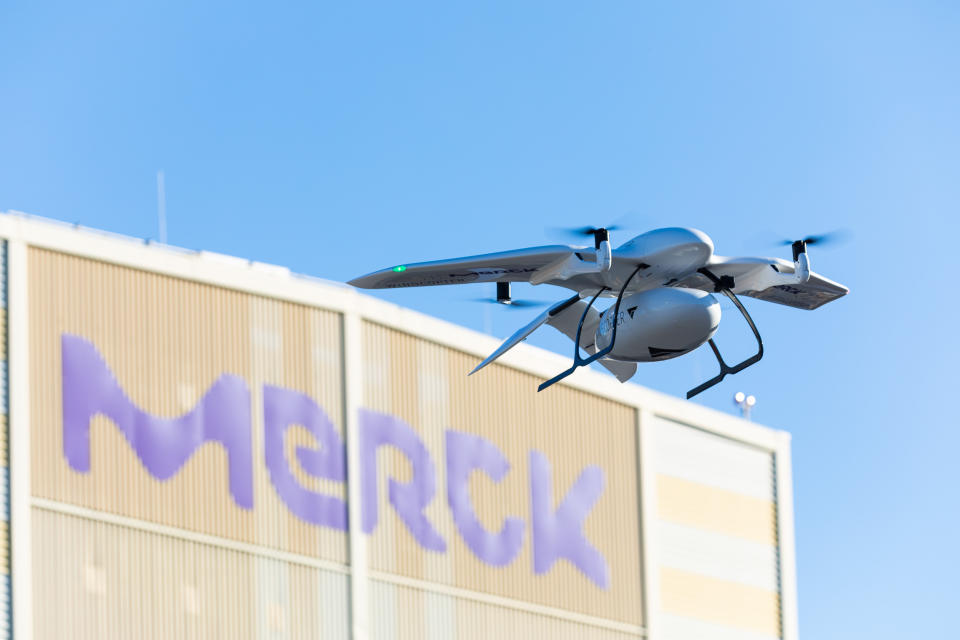German drone delivery trial paves the way to replacing trucks for inter-office deliveries

Drone startup Wingcopter, working with partners Merck and the Frankfurt University of Applied Science, has completed a first flight of a new drone delivery trial designed to show the benefits of using drones instead of trucks or other road-faring vehicles for moving small cargo between two physically separate office facilities. This first flight covered around 25 km (roughly 15.5 miles), taking a sample of pigments from one Merck lab in Gernsheim to its headquarters in Darmstadt in Germany.
This trial is significant in more ways than one: The area it covered spanned a fairly dense metropolitan area, flying over power lines, trains, roadways and more. It also did all of this without continuous line-of-sight, something that's been required of most drone delivery trials in a commercial setting to date. The partners involved are hoping this means it can stand as a blueprint to other similar pilot projects and trials being run all over the world.
Next up, the project will continue to fly additional deliveries and then summarize their findings in a report to be delivered in March. Already, using drones instead of trucks seems to provide advantages in terms of time (saving between an hour and even a full day in some cases) and emissions, and it can cut down on the amount of empty return trips made by large, heavy gas-guzzling vehicles, as well.
Wingcopter CEO Tom Plümmer points out in a press release detailing the news that his company has "repeatedly demonstrated" the advantages of drone delivery across a number of use cases, including for use in getting life-saving medical supplies to remote areas. Trials in the U.S. include Alphabet's Wing, which partnered with FedEx, and UPS, which is working with Matternet, but this commercial trial shows a potentially more fruitful avenue for deploying services in the near-term that don't require buy-in from the average consumer.

 Yahoo Finance
Yahoo Finance 